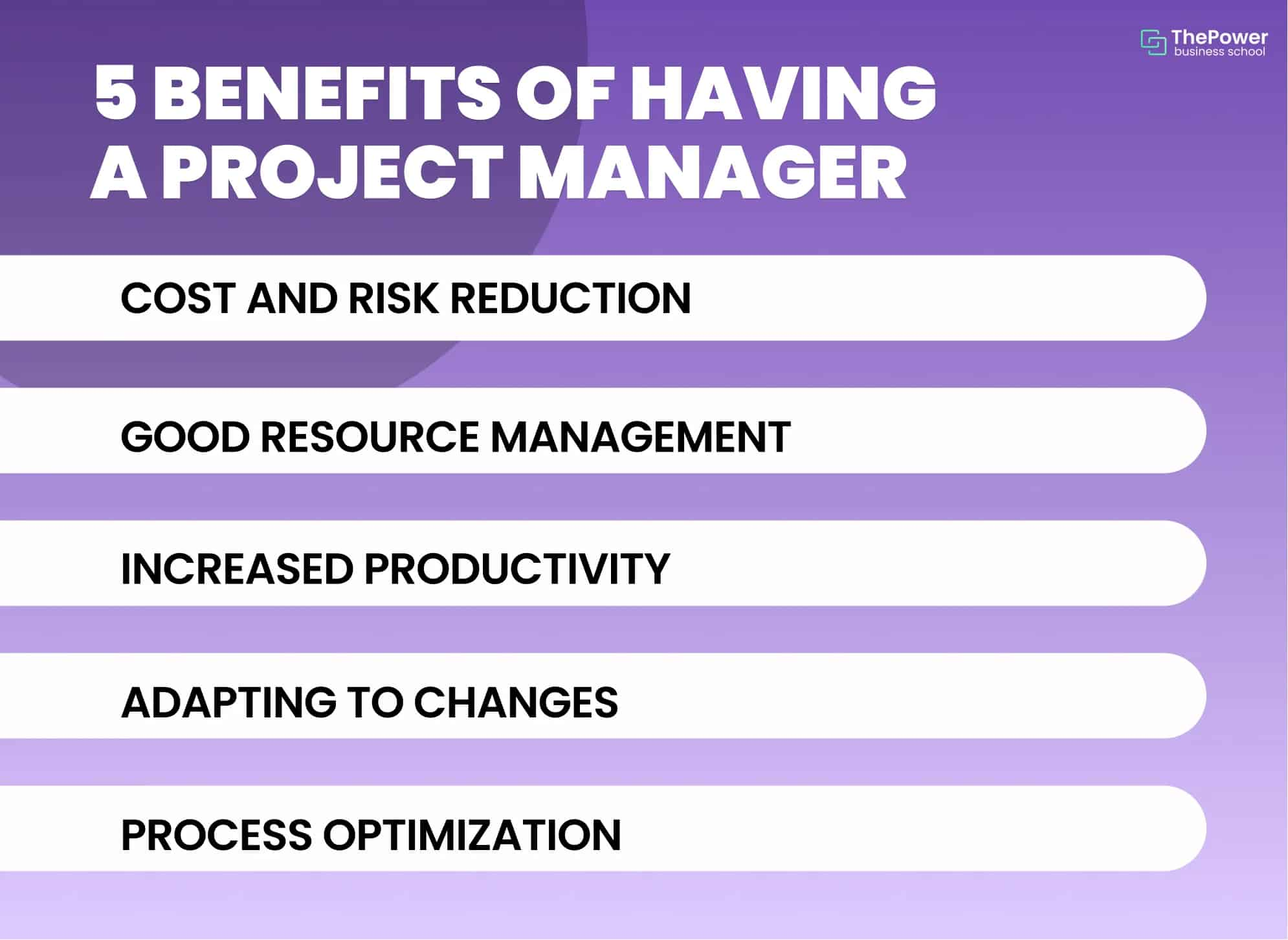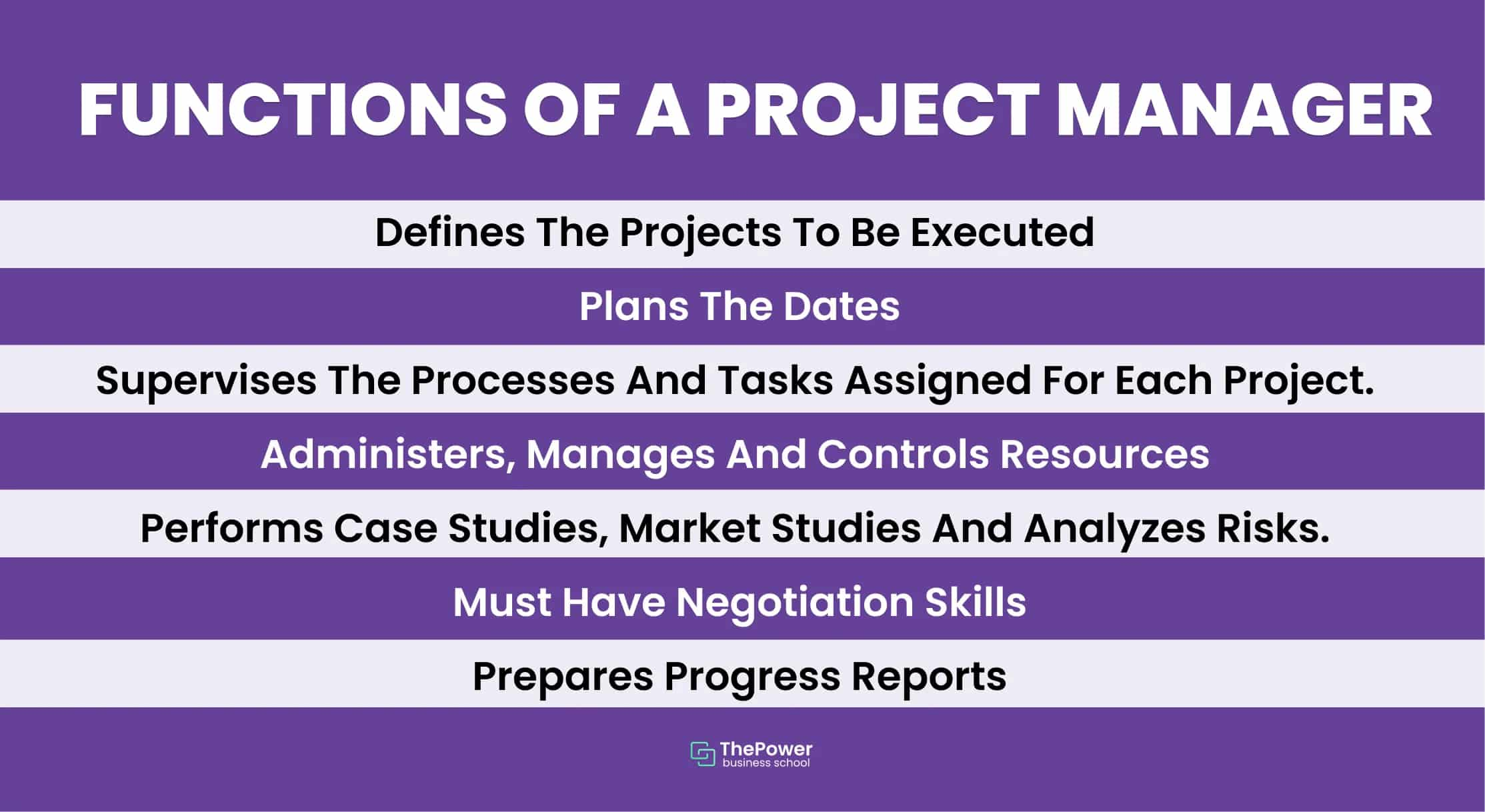
Claudia Roca
If you’ve achieved the goal of becoming a project manager, it means that you are a key player in the development and productivity of a company or client.
The project manager has been a position that, in recent years, has taken on greater importance due to the effectiveness in terms of the dedication that every project requires to fulfill its purpose…
Every project needs planning.
Every project requires a supervised development.
Every project aims to meet objectives efficiently.
These three requirements are the cornerstone of the project manager. Do you want to know more about this interesting position, its functions and benefits for a company or a particular client? These questions will be answered below.
What is a project manager?
It could be defined as the person in charge of planning, guiding and concluding the results of a project established by a company or client to meet specific objectives.
The intention of this position lies in the need to reduce, as much as possible, all possible costs and time, to manage resources and to achieve efficient results.
This, in turn, must meet a certain skill profile. The skills will help to ensure that the person has what it takes to assume the position and that his or her performance is as expected or even better. These skills will be mentioned below.
If you have specialized training in:
Business Administration.
Management.
Marketing.
Public accounting.
You will have a foot forward in terms of the possibility of being able to assume these management positions, since you have the basic and fundamental knowledge to fulfill your functions.
5 Benefits of having a project manager
Well, having a person specialized in project management is extremely important for the fulfillment of objectives.
Whatever the purpose of a company, achieving these objectives requires constant attention to ensure their proper development, therefore, not having a trained professional can cause problems.
Therefore, a good project manager will make sure that each one of these goals has its due attention. This reduces the probability of errors or failures, increasing the possibility of not only meeting the objectives but also of surpassing them.
Thus, the most outstanding benefits are:
1. Cost and risk reduction
When we refer to reducing costs, we mean that each project requires an investment: resources, personnel, time, etc.
For this reason, a project specialist will elaborate plans and strategies in order to reduce these expenses to a minimum, but with quality and successful results.
However, risks are a more complex issue. These are the probability or possibility that a project will fail before, during or even after its completion.
The project manager must study these probabilities and work to avoid them at all costs, always with an emergency plan.
2. Good resource management
A project requires inputs, the type of which depends on the niche or field in which the company specializes. Food, technology, design or arts, music, among others. The project manager is in charge of making sure that every investment in a project's resources are well used.
He ensures that nothing is lost or minimizes that loss to non-harmful levels. This, in turn, translates into a considerable reduction of additional costs.
3. Increased productivity
What company or customer doesn’t require or demand productivity? This is synonymous with profitability, which is why companies are always looking for the personnel and resources necessary to increase their productivity.
Project management involves boosting production in an ethical way. The project must satisfy a real need of a community so that it is demanded, and therefore, the product or service offered needs to be more productive. It’s important to seek productivity, but without the need to be exploitative.
4. Adapting to changes
Has a project had a change of paradigm and objectives in full development? This should not be a problem for the manager.
He/she should always have a plan of adaptability to possible changes.
In fact, if possible, the manager should be able to anticipate possible changes according to the type of project, in order to be able to take the necessary and correct measures so that the project can continue to develop smoothly following the new objectives.
5. Process optimization
In the absence of project supervision, your processes may be late, flawed or fail to meet expectations. Therefore, a good project manager will be able to supervise each stage of development to the point of resolving conflicts and creating spaces adapted to the needs.

Roles and competencies of a project manager
We’ve already seen the advantages and benefits that a manager can offer within a company or when dealing with client requests. But what competencies do you need to develop in order to aspire to the position, and what are the functions to be assumed?
If you have training in the specialties of management and/or administration, it’s possible that you have the notions and bases for this project. However, you can choose to invest in training schools that provide the necessary knowledge.
Functions
Defines the projects to be executed according to the needs and capabilities of the company or client in question.
Plans the tentative dates for the fulfillment of objectives and their admissible deadlines.
Supervises the processes and tasks assigned for each project.
Administers, manages and controls the resources designated for the project, including financial capital.
Performs case studies, market studies and analyzes the risks that may be assumed according to the objectives of each project.
Must have negotiation skills, as he/she will be in constant communication with resource providers.
Prepares progress reports to verify what results are being obtained in the development of objectives, up to the final conclusion report.

Competencies
Sense of responsibility: If you are not a person capable of generating trust, it will be very difficult for you to become a project manager. Responsibility is a prerequisite, as a project manager is a person qualified to ensure that all project processes are carried out in full and objectives are met.
Adaptive: You should know to deal with situations of high demand or that require changes in the activities, processes or objectives of each project.
Communicative: You must be able to synthesize and simplify information, to be precise, coherent, understandable and assertive: your level of communication will define your relationships with your staff, suppliers and clients.
Leadership: Your ability to influence your staff, have a critical sense, know how to dominate emotions and make the right decisions at the right time, is part of being a leader and will be very necessary in your work as a project manager.
Why should I choose to become a project manager?
If you ever thought that you could be of great help to others, that you could be aware of great ideas and translate them into reality and achieve success by helping others to achieve success, then this job may be ideal one for you.
Imagine that you have a friend who loves music, and he really wants to make a living from his art because he has a lot of talent and dedication.
However, this person does not know how to move forward with his project, this is when your business opportunity comes to light and it’s also an opportunity for both of you to achieve your goals.
You advise him about the resources he needs, you communicate with the necessary contacts for its diffusion, you make sure he is ready to debut, and you help him with his administration and management of financial resources.
You have achieved your mission, you transform the support into profitability, and the person has fulfilled his dream, an excellent way to make a living, isn't it?
It’s worth noting that this career will always be in demand. In every age of mankind projects have arisen, every project is born from an idea, and the idea is innate to our human capacity.
Therefore, the demand for project managers will always exist, in any field and in any era.
What are the obstacles for a project manager?
Of course, a manager is not synonymous with easy work. On the contrary, he or she is responsible for the success or failure of the project and must therefore be aware of everything that is going on around him or her.
1. Responsibility and leadership
To be a good project manager is to have the ability to recognize mistakes and be able to remedy them. Assuming consequences is very important, but he/she must also be able to avoid getting demoralized and turning things around.
On the other hand, when delegating duties to your team, you must be a good leader. Be communicative, assertive, demanding but respectful, and know how to inspire the team.
It’s not about giving orders from one side to the other, but about the team really feeling that it is a joint work and that the manager is there to supervise, support and help where needed.
2. Recognize job functions
We mentioned it earlier, each worker or work staff has a specific job function, or they may be providing the service while their original job is another.
Whatever the reason, the manager must have each job function well defined so that he or she can identify whether all members are performing their duties to the best of their abilities.
At the same time, the project manager must also have two types of positions, the manager, which has to do with managing the entire project, making decisions, creating strategies, keeping the team united and focused, etc... While he/she must also be more technical, actively participating in the project in the area he/she specializes in.
3. Set achievable objectives
This is very important, the manager must be able to recognize when a goal is possible, and when it’s not. And he must not skimp or hesitate to make this clear to the whole team, from his superiors to those under his command.
This will enable the company or client to plan projects that are possible and have a real chance of success, and save money on projects that are not on a good basis.
4. Internal conflict resolution
If there is any kind of problem or concern within a project regarding the work team, the manager must be able to deal with that problem in the most healthy, fair and mature way possible.
In addition, the manager must be a very self-confident person, confident in his or her decisions and with a well-defined approach to each project.
Thus, in case there are uncertainties, fears, worries or doubts in any member, he/she will be able to encourage and motivate them to fulfill the objective.
What did you think of the information presented? If you found it useful, don't forget to share it with whoever you consider necessary.
Are you a project manager, what have been your biggest challenges?
Oct 14, 2022








